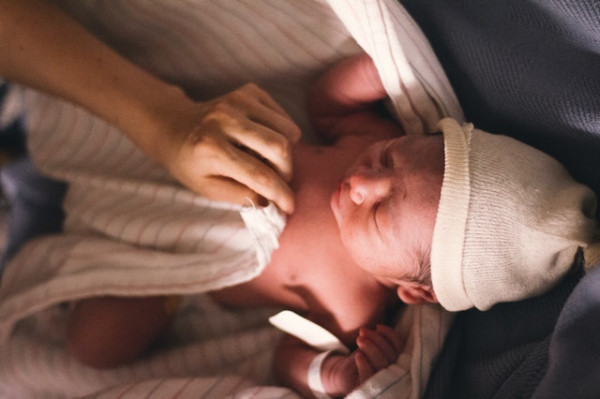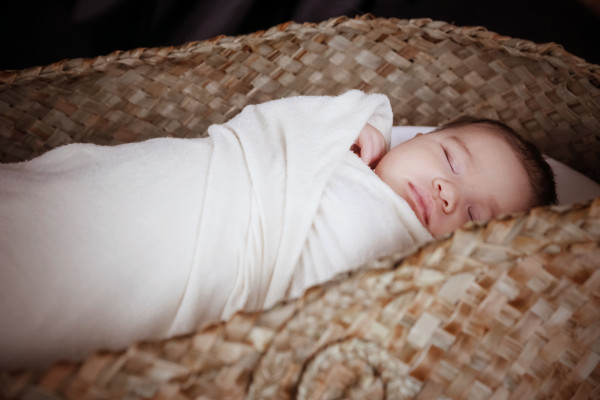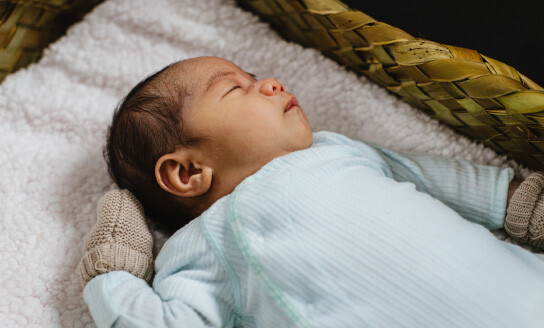Newborns and the day-night cycle
Humans need sleep for brain and physical development, and we spend about one-third of our life asleep.
The biological process that controls our feelings of being sleepy or awake over a 24-hour period is called the circadian rhythm, or body clock. It’s controlled by an area of the brain that responds to light, which is why most of us are most alert during daylight hours and are ready to sleep when it’s dark outside.
A newborn baby isn’t born with a circadian rhythm, and they don’t know people sleep at night. Normally within the first three months they gradually begin to organise sleeping and waking according to daily cycles of light and darkness.
It’s a good idea to start getting your baby used to the day-night cycle from birth. During the day:
- open the curtains slightly
- keep your everyday noises normal – use the vacuum cleaner and shower etc., even if they're sleeping.
At night, keep the lights low and try not to overstimulate your baby. Try a regular routine before bed, like a:
- warm, quiet bath
- massage
- feed and a quiet cuddle.
But remember, the most important things in these early months are responding to your baby and being flexible. If your baby’s unsettled, it’s fine to cuddle or rock them to sleep. It’s also okay if your baby sometimes falls asleep while they’re feeding. Do what works best for you and your baby.

Newborn sleep: what to expect
All babies are different, and their sleep patterns can vary a lot. For these first few weeks, it’s a good idea just to let them nap when they’re tired, and to feed on demand when they’re hungry.
Newborns sleep a lot - around 16 out of every 24 hours – and they need eight to 12 feeds a day so they get enough food for growth and development. This means when they’re awake, they’re usually feeding, and after feeding, they’ll probably want to go back to sleep.
This seemingly never-ending feed-sleep cycle starts to change after three to four weeks, when your baby starts to take in their surroundings, and be a little more interactive with you. But still, at this age, there isn’t much time for play.
Very young babies tend to sleep on and off through the day and the night, and the length of those sleeps can vary.
Keeping newborns awake during the day won’t make them sleep more at night. At this stage, let them sleep when they’re tired, and feed them when they’re hungry. Overtired babies often wake more frequently.
Newborn sleep cycles
You’re walking around with your new baby in your arms, gently rocking them to try to get them to sleep. Their eyelids droop and then close, but gently flutter. They twitch, smile and make the cutest sucking motions in their sleep. You gently put them down in their safe sleep space and start to creep away – and then they wake up and cry loudly! That’s because they weren’t fully asleep when you put them down – they were just in light sleep.
Newborns have two kinds of sleep – light and deep sleep.
- During light sleep, they might move around a lot and make noises. They might twitch, have irregular breathing, smile, or make sucking motions with their mouth. They can be woken easily while in light sleep.
- During deep sleep, they hardly move, and their breathing is deep and regular. They’re less likely to wake while in deep sleep.
Try your ritual again, but continue it for a bit longer (about 20 minutes longer). Your baby’s face should relax, they should stop twitching and start breathing shallow, regular breaths, and their muscles should completely relax. Their fists should unfold and their limbs dangle weightlessly. Your baby should be ready to be put down now, and you might be able to sneak away and get some well-deserved rest.
Or this may not work for you and your baby at all! All babies are different.
Once baby’s (finally) asleep, they go through sleep cycles. Each newborn sleep cycle has both light sleep and deep sleep, and takes about 40 minutes. At the end of each sleep cycle, newborns wake up for a little while, and may cry or grizzle, and you might need to help them settle for the next cycle.
Babies have growth spurts at two, four and six weeks, so you may find them waking to feed more often during those times.
Signs your newborn is tired
Your baby may get tired after any activity – a feed, a nappy change, or when you’ve had a cuddle or playtime. They’ll likely get tired after they’ve been awake for one to one and a half hours.
When they’re tired, your baby might:
- clench or suck on their fists
- have tense or jerky movements
- arch backwards
- yawn
- become grizzly
- have trouble focusing, or stare into space
- startle easily.
Settling baby to sleep
Every baby is different, and you’ll get to know what works best for settling your baby down to sleep.
Having a sleep routine is a good start, but try to be flexible. Your baby’s sleep cycles will change as they grow.
Try putting baby to bed while they’re awake or slightly sleepy, if possible. That way they associate their bed with sleep. If they wake up knowing where they are and feeling safe, they might be able to settle themselves back to sleep.
Sleep between one and three months
As your baby becomes more wakeful during the day, their sleep pattern may change. They might start having longer sleeps at night – maybe even around four to five hours.
Most babies still need night feeds, and help to settle back to sleep.
If your baby was premature, or had a low birth weight, your doctor might recommend you only let your baby sleep for a certain amount of time before waking them for feeds.
Where baby sleeps

Image courtesy of Hāpai te Hauora
Your baby needs a safe space to sleep.
Until they’re 12 months old, babies are vulnerable to SUDI (Sudden Unexpected Death of an Infant), also known as SIDS or cot death. It’s defined as the sudden and unexplained death of an infant during sleep, and each year in New Zealand, it affects 40 to 50 babies. In many cases, death or injury could be prevented by using safe sleep practises.
Babies should sleep in the same room as you or the person looking after them for their first six months of life. It’s never safe to put your baby to sleep in an adult bed, on a chair or a couch. They should have their own safe place to sleep.
Cots and bassinets need to be set up away from blind cords, curtains, power points, heaters, pets and other children.
If you’re planning to share your bed with your baby (also called co-sleeping), put them beside you in their own baby bed, like a Pēpi Pod® or wahakura. This may help reduce the risk of your baby suffocating while they’re asleep.
Read more about safe sleep and about safe beds and bedrooms.
Sleeping problems – what’s not normal
Babies can be snuffly or noisy sleepers. It’s common for babies to have irregular breathing patterns when they sleep – they might breathe quickly, and then have short pauses, for example. This is normal.
If you’re worried about your baby’s sleep because:
- you can’t settle them
- they sleep for long periods
- they’re too tired to feed
- they don’t wake for feeds
- they’re not feeding well, or not having many feeds
- they’re breathing more quickly than usual
- they’re wheezing or grunting
then contact PlunketLine on 0800 933 922, or talk to your midwife, doctor, or your Well Child nurse.
Looking after you
For parents and caregivers, this time of severely broken sleep while caring for a baby is exhausting. If you have other children, it can be even more challenging. Just try to sleep or rest when your baby or children are, rather than rushing around or doing housework. You could arrange for whānau or friends to look after your children so you can get some rest.
If you’re breastfeeding, you may want to consider expressing breastmilk so someone else can feed your baby while you rest. If you’re formula feeding, show someone else how to make up the formula.
Need support with sleep and settling?
Call PlunketLine free on 0800 933 922 to speak with one of our friendly nurses. We also offer free, private online consultations with nurses specially trained in sleep and settling support for your pēpi.
